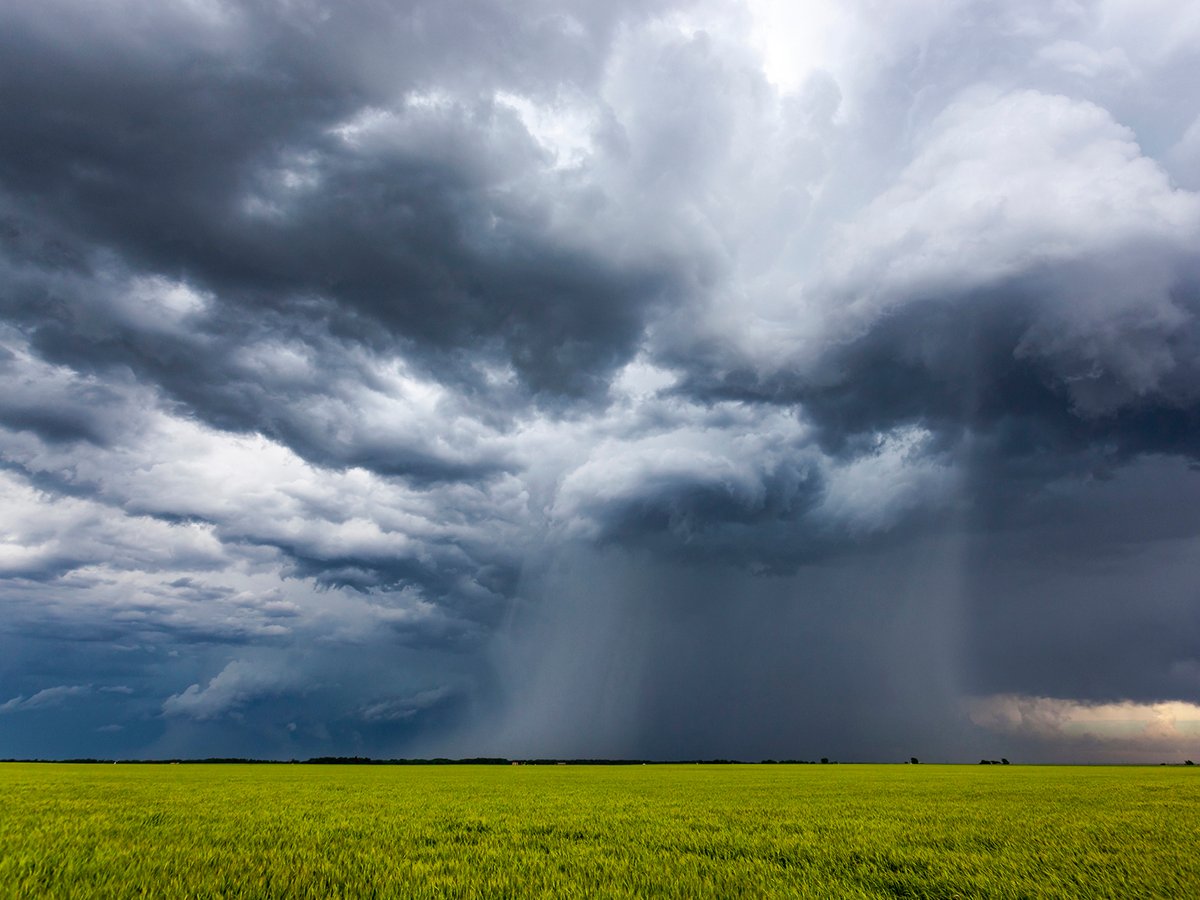BANFF, Alta. – Grow it and they will buy it. That is the advice to prairie farmers from Husky Energy, Canada’s largest ethanol producer and a major wheat buyer.
|
_____ Correction _____
A story on page 30 of the April 19 issue suggested there are Canadian Wheat Board rules that restrict Husky Energy’s ability to buy wheat for ethanol directly from farmers. In fact, the CWB is not involved when wheat is sold to domestic ethanol producers. Read Also
Extreme rain increases as planet warmsIn this issue, we are going to wrap up our look at extreme rainfall by examining the different weather patterns that tend to be associated with these rainfall events. |
The company wants high starch wheat for the best ethanol yields at its Lloydminster, Sask., and Minnedosa, Man., plants, said Husky’s Vince Chin at the Alberta Institute of Agrologists annual meeting in Banff March 28.
About 70 percent of the plants’ costs are for feedstock and finding wheat to meet the specifications is an ongoing challenge.
Husky wants high yielding, high starch varieties like red winter wheat, Canada prairie spring wheat or durum. Chin suggested farmers could form small co-operatives that could be contracted to grow varieties specifically for ethanol production.
Kernel visual distinguishability, or KVD, is a limiting factor for registering new ethanol type varieties. Canadian Wheat Board rules also restrict market flexibility when Husky wants to buy directly from farmers, he said.
Breeders argue it is costly to develop these wheats when they may not fetch a high price. Higher yielding varieties tend to be later maturing, so winter wheat might be a better fit for ethanol plants.
The company prefers wheat that weighs 58 pounds to the bushel with less than 15 percent moisture. The specifications are lower than the milling industry and Husky would be willing to sign contracts with farmers so supply is not interrupted. It would also be willing to offer farmers cash advances starting in 2008.
“The current production barely satisfies future ethanol production demands,” Chin said.
Stewart Campbell, a biorefining consultant from Cochrane, Alta., said western Canadian agriculture could be in peril if something is not done about KVD restrictions, as well as wheat and barley yield improvements.
“Wheat is what I call a government crop,” he said. Research is funded with public money and it is difficult to get new varieties that fit industrial needs.
“There is a lack of industry investment in this in contrast with the situation with canola,” he said.
“There is a research structure and funding structure, which is in the way of making the kinds of gains that it takes,” Campbell said.
As for future plants coming to Canada, Chin said builders should consider locations near large feedlots where they can sell the distillers grain byproduct. Husky ships its byproducts to dairy farms in Quebec and British Columbia.
Having a strong business plan and plenty of financial backing are also important.
Anyone going into the oil and gas business does so knowing they must have deep pockets. The same advice applies to the biofuel industry.
In addition, potential ethanol producers should remember the United States has an oversupply of ethanol and it will look to sell it to Canada.
“The U.S. grew too fast, too soon,” he said.
Husky’s Lloydminster facility is the largest wheat based ethanol facility in the West with annual peak production of 130 million litres of ethanol and 134,000 tonnes of dried distillers grain. A second 130 million litre per year plant is being constructed in Minnedosa. It should be fully operational by Christmas.
Husky’s 2006 annual report listed sales and operating revenues, net of royalties, at $12.7 billion, an increase of 24 percent from $10.2 billion in 2005.















